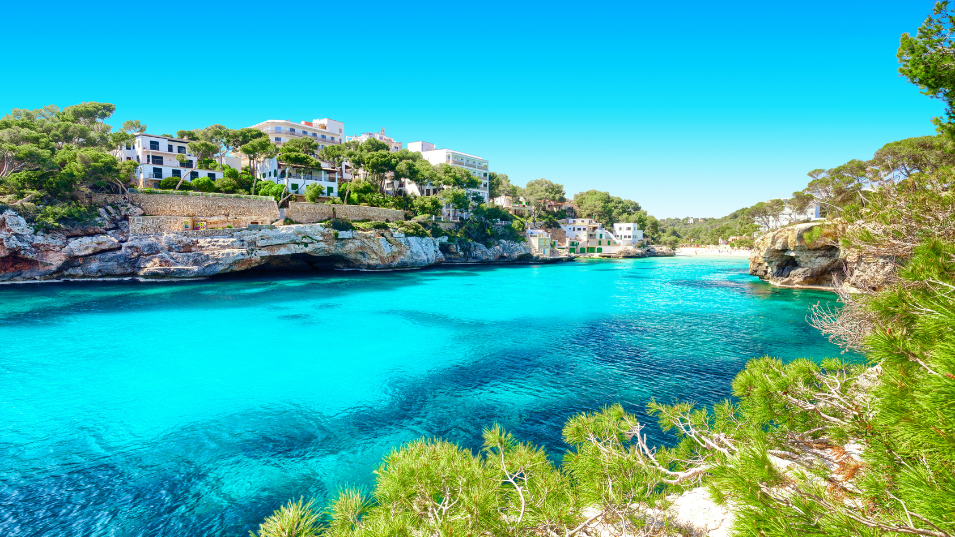Navigating renting, co-owning, or buying a second home in Europe outright

Embarking on the journey to secure a second home in Europe is an exciting venture, but the path you choose – renting, co-owning, or buying outright – can significantly impact your experience. Before diving into the options, it is crucial to reflect on your lifestyle, priorities, and financial considerations. In this blog post, we will guide you through the decision-making process by posing essential questions and presenting the pros and cons of each choice to help you determine the right fit for you.
Questions to ask yourself:
Do I prefer variety or familiarity? Explore your desire for variety. Do you thrive on exploring new destinations, or do you prefer the comfort of a familiar location? Assess how this preference aligns with your choice to rent, co-own or to buy a holiday home.
What is my long-term goal for the property? Consider not only the immediate future but also your long-term intention with the property. Are you seeking a quick escape, a potential retirement haven, or a legacy for future generations?
How often will I visit and how long do I want to stay? Be sensible about your travel patterns. Will the property be a weekend retreat, an occasional getaway, a place to work from remotely, or a more permanent residence?
What is my budget? Taking into account the number of days per year you want to spend in your holiday home, compare the long-term cost of renting with the cost of owning a holiday home with co-ownership or outright. Beyond the initial purchase cost, factor in ongoing expenses such as cleaning, maintenance, property taxes, and potential fluctuations in currency exchange rates. Establish a comprehensive budget that includes all aspects of ownership (including upsides such as potential rental income and appreciation of value of the property).
Do I want ownership benefits? Dig deeper into your financial objectives. Are you primarily looking for a space to enjoy immediately, or are you interested in the long-term benefits of building equity and potential real estate appreciation?
Deciding whether to rent, co-own, or buy a second home in Europe outright does not only depend on your lifestyle, financial situation, and preferences. Each option has its advantages and drawbacks, so carefully consider the following before making your final decision.
Pros and cons of renting, buying outright, and co-owning a holiday home:
Renting a second home in Europe provides flexibility and freedom without the long-term commitment. It’s an excellent choice for those who desire variety and wish to explore different destinations without being tied down. Here are some key considerations:
+ PRO Flexibility: Renting allows you to stay in different locations easily, catering to diverse travel interests.
+ PRO Maintenance-free vacationing: No need to worry about the property’s maintenance as this is the owner’s responsibility.
+ PRO Capital outlay: The outlay involved in renting a property is considerably lower than purchasing a home outright.
– CON Lack of equity: Renting does not contribute to home equity, and you won’t benefit from an appreciation of value of the property.
– CON Lack of personalisation: Even if you keep coming back to the same holiday home every year, you will typically not be able to personalise it or store personal belongings for your next stay.
Managed co-ownership of a second home involves sharing ownership and expenses with a small number of like-minded owners. It is a collaborative approach that makes holiday home ownership more affordable, accessible, and hassle-free. Consider the following:
+ PRO Shared costs: Co-owning allows you to split the purchase and running costs with others, making it more affordable.
+ PRO Increased buying power: Pooling resources expands your purchasing options and may grant access to more desirable locations and properties.
+ PRO Fully managed: Repairs, maintenance, and day-to-day management duties are typically managed end-to-end by your service provider.
– CON Compromises: As you are sharing your home with others, you may need to make compromises when it comes to planning your stay dates or certain decisions regarding the home.
– CON Limited personalisation: It is usually possible to store personal items in the home, but you may not be able to style the home according to your personal preferences.
Purchasing your own second home provides the ultimate offering when it comes to personalisation and long-term investment. Here is what to consider:
+ PRO Flexibility: There are no restrictions whatsoever when it comes to how often and how long you want to stay in your home each year.
+ PRO Personalisation: You have the freedom to customise your space according to your taste and preferences.
+ PRO Equity and appreciation of value: Owning builds equity, and you may benefit from real estate appreciation over time.
– CON Financial commitment: Buying involves a significant financial investment, both in regard to upfront costs and ongoing expenses.
– CON Maintenance responsibility: You are responsible for property maintenance and upkeep.
– CON Foreign buying barriers: Some countries may have restrictions or additional requirements for foreign buyers, potentially complicating the purchasing process.
As you navigate the enticing possibilities of renting, co-owning, or buying a second home in Europe outright, remember to ask yourself these fundamental questions and thoroughly consider the advantages and drawbacks of each option. This will guide you toward the option that aligns best with your aspirations, ensuring that your holiday home becomes a fulfilling and seamless part of your life. Should you decide that fractional ownership is the ideal option for you, please contact our international team and start your journey to co-ownership.
Discover more about Lazazu:
How Lazazu co-ownership works | Frequently asked questions about shared holiday homes | The benefits of fractional ownership | Browse Lazazu’s selection of second homes | The difference between timeshare and co-ownership